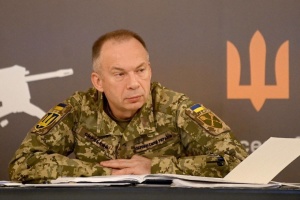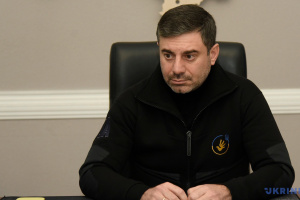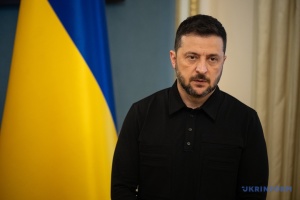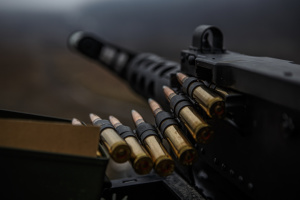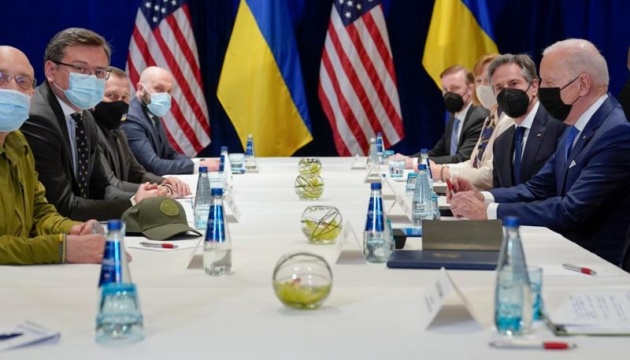
Evolution of the West’s support for Ukraine over October 2022
Ukraine and the world had to respond to this challenge. This resulted in several positive trends: the world did not get intimidated by terrorist attacks and threats of nuclear blackmail, but instead strengthened its support for Ukraine. Democratic countries are helping Ukraine realize its right to self-defense, according to Article 51 of the UN Charter, because in this way they also contribute to the maintenance of peace and international law and order. A decision was made to create a new air defense system in response to terrorist attacks. The role of a number of large European countries in helping Ukraine has also increased, including Germany, France, Italy, Spain, and the Netherlands.
For the first time, Europe, represented by High Representative of the EU for Foreign Affairs and Security Policy Josep Borrell and German President Frank Walter-Steinmeier, has spoken about the advent of the new era and the beginning of the struggle for democratic values. Chancellor Olaf Scholz’s statement about the vision of Ukraine in the EU and their synergy, which should strengthen the whole of Europe, was also a major step. At the same time, both NATO and the EU, through the same Josep Borrell, declared their readiness for a convincing response in the event that Putin’s regime were to use nuclear weapons.
In this article, the Centre for Strategic Communication and Information Security suggests looking back at the main events and statements that show that Western support for Ukraine reached a new level in October.
Protection of the sky
On the morning of October 10, Ukraine was targeted by a massive missile attack. At 8:18 a.m., one of the missiles hit the intersection of Shevchenka Boulevard and Volodymyrska Street in the center of Kyiv, killing 6 people and injuring 31. The entire world saw footage of burning cars. The debris of the explosion also hit the buildings of Taras Shevchenko Kyiv National University. Fortunately, the German embassy, which is only 300 meters from the scene of the tragedy, was not damaged. Another missile hit near the first one, making a deep crater on the playground in Taras Shevchenko Park. It was by sheer coincidence that no children were there at the time. The explosion of this missile damaged the historical building of the Khanenko Museum across the street from the park.
The embassies of various countries, which had returned to Kyiv, had the opportunity to see the terror of the Putin regime with their own eyes. One of the strikes hit an office center housing the visa department of the German embassy.
It remains a mystery how Putin imagined these attacks would make Ukrainians love the Russians and surrender to their mercy. On the same day, Minister of Defence Oleksii Reznikov commented on the situation on his Facebook page: “This is worse than a crime, it’s a mistake. This is a mistake that the Kremlin resorted to due to the successes of our soldiers… Now, to the most important point. The human point. Today, I was touched by many messages from colleagues and partners from different countries expressing unconditional support for Ukraine and condemning the actions of the Kremlin. This is a sincere response of people who have clear ideas about good and evil, about honour, dignity, decency. They are burdened with responsibility and care about their countries. But many of them realize more and more clearly that the civilized world cannot have anything in common with the current Kremlin regime.”
The next day, during an emergency online summit with the leaders of the G7 countries, President Volodymyr Zelenskyy asked for help to create an effective anti-aircraft and anti-missile defense.
Several days later, on October 13, speaking after a two-day meeting of defense ministers of NATO countries, Secretary General of the organization Jens Stoltenberg supported the UN General Assembly’s condemnation of Russia’s illegal annexation of four oblasts of Ukraine. “This is a clear and strong message that Russia is isolated and that the world stands with Ukraine,” he said, reiterating that NATO is not party to the conflict, but that Allies will continue to support Ukraine for as long as it takes.
Commenting on the aid to Ukraine, Jens Stoltenberg noted: “Ukraine is making progress pushing back the Russian aggressors in the east and south. NATO Allies supply advanced systems, including artillery, air defense, and armored vehicles. … Just in the last few days we’ve had announcements of shipments from countries like the United States, Germany has just announced and actually delivered its advanced air defense system. Today, Spain announced a new delivery of HAWK air defense launchers. France has announced the strengthening of air defense for Ukraine, as well as the Netherlands and many other countries.”
Training of soldiers
On October 15, an interview with French Defence Minister Sebastien Lecornu was released, in which he said that France will conduct training for 2,000 Ukrainian soldiers on its territory. “In France, artillery calculations for Caesar have already been prepared, but here we are changing the scale,” the minister said. “The priority is, unequivocally, air-to-ground defense. We are going to provide, as announced by the President of the Republic, reliable Crotale anti-aircraft systems. They will be especially useful in the fight against drones and air attacks,” said the minister. On October 16, it was announced that the command of the German Armed Forces would receive 5,000 Ukrainian soldiers who would undergo training in the following months.
According to media reports, the EU mission to train Ukrainian military personnel will train 15,000 Ukrainians. As part of the mission, 12,000 soldiers will be provided with basic training. Another 2.8 thousand should receive specialized training. Both new recruits and experienced military servants will study. In total, the mission is designed for two years. It should be added that about 10,000 soldiers of the Armed Forces of Ukraine are currently undergoing training in the UK as part of the INTERFLEX operation.
Activation of Europe
Josep Borrell’s speech to the EU ambassadors, which coincidentally happened on the day of the attack on October 10, became a landmark one. The European official defined the situation in the world as a storm, and therefore, the EU should take resolute action.
“’We have never done it’ is not a recipe. Maybe we have to start doing things that we have never done in the past. We had been discussing the Ukrainian Training Mission before the war for months. And then, boom, the war comes and people said. ‘We should have done it.’ Yes, we should have done it. And now we are doing it quickly – well, quickly for European standards. Quickly for European standards means a couple of months. But unhappily, the war is still there, our training mission will have had the possibility of acting.”
During the speech, the High Representative also made an unusual statement that the EU should conquer the minds of people. “The Russians and the Chinese are very good in that. They are industrializing, they have [troll] farms systematically repeating, reaching everybody in the world — once and again, once and again. We do not have a Russia Today or a Sputnik, not even Radio Liberty. But I think that all of you have to do much more on communication. I need my delegations to step up on social media, on TV, in debates. I need you to be much more engaged in this battle of narratives. It is not something secondary. It is a big battle: who is going to win the spirits and the souls of people?”
All this should be done to “to explain that democracy, freedom, political freedom is not something that can be exchanged by economic prosperity or social cohesion. Both things have to go together.”
And on October 13, Josep Borrell made a statement that the Russian army would be destroyed in the event of a Russian nuclear attack on Ukraine. “There is the nuclear threat and Putin is saying he is not bluffing. Well, he cannot afford bluffing. And it has to be clear that the people supporting Ukraine and the European Union and the Member States, and the United Stated and NATO are not bluffing either. And any nuclear attack against Ukraine will create an answer, not a nuclear answer but such a powerful answer from the military side that the Russian Army will be annihilated, and Putin should not be bluffing. This is a serious moment in the history, and we have to show our unity, and our strength and our determination. Complete determination.” NATO Secretary General Jens Stoltenberg also made a statement about the response in the event of a nuclear strike.
Ramstein
On October 12, the sixth meeting of the contact group on the defense of Ukraine took place. Defence Minister Oleksii Reznikov summed up the Rammstein meeting on his Facebook page: “Great friends of Ukraine — US Secretary of Defence Lloyd Austin and the chairman of the Joint Chiefs of Staff of the US, General Mark Milley, publicly identified the main priority of providing assistance in the creation of an integrated anti-aircraft and anti-missile defense system for the Ukrainian sky.”
At the meeting of defense ministers of NATO countries on October 13, Mr. Stoltenberg also explained what help is in question at this stage. “There has been a lot of focus on winter clothing, on equipment to enable them to also operate throughout the winter, generators, tents, and all the things which are extremely important to enable the Ukrainian forces to operate also throughout the winter. Then, I think I will leave it to the Ukrainian commanders to comment exactly on how they will operate. But our task is to enable them to also be able to conduct meaningful operations throughout the winter and continue to supply them with everything from fuel, winter clothing, tents to advanced weapons systems, air defense, armored vehicles, and advanced artillery.” He also announced that NATO would provide Ukraine with hundreds of drone jammers for use against Russian and Iranian UAVs.
“October will go down in history as the month when important decisions were made to provide us with air defense equipment,” says military expert Oleksandr Musienko in a comment to the Centre for Strategic Communication. “We have the IRIS-T system, the NASAMS systems are being provided more expediently… I believe France joining the assistance to Ukraine in protecting its sky has become a breakthrough decision. Among other things, we are talking about the Samp/T system. This is the French-Italian system. It is important that there be political will. On November 1, the presidents of Ukraine and France had a conversation. After that, the Elysée Palace made a statement that France would help protect the sky. This is our operational need. And we see that our partners hear us. As stated by US Defence Secretary Lloyd Austin, they will help us create a multi-echelon integrated air defense system, which should include systems of various ranges.”
The Samp/T anti-aircraft missile complex is a modern system that can also intercept ballistic missiles. And it was this system that Volodymyr Zelenskyy requested from presidents of France and Italy during his presentation at the G7 online summit the following day after the attack on the capital.
The Long Haul
One of the strategic topics of the NATO summit in October, which will be of significant importance for the defense of Ukraine, was the decision on the need to increase the production of weapons, investments and long-term actions for this. As Stoltenberg noted, this allows “to replenish our own stocks for our own deterrence and defense, but also to enable us to continue to support Ukraine.”
We can also note that at the Madrid NATO summit in June 2022, the Allies decided to provide support in secure communication, fuel supply, medical equipment, bulletproof vests, winter clothes, mine disposal equipment, protection from chemical and biological hazards, as well as mobile anti-UAV systems. They also said that the Allies were ready to continue to support Ukraine in the long term, to participate in post-war reconstruction and to promote reforms.
“In addition to the fact that we are receiving air defense equipment faster than before, it is also encouraging that the supply of F-16 aircraft and Western tanks to Ukraine is being considered at a fairly serious level. Oleksii Reznikov has recently mentioned these weapons as well,” says Oleksandr Musiienko.
Western high-tech weapons are already influencing the course of events. During the missile attack on October 31, the German system IRIS-T performed at an effectiveness rate of 100%.
It is notable that the Russians have launched a disinformation operation claiming that the sky over Ukraine is not protected. Like, we were deceived, IRIS-T didn’t really intercept anything, and the information about good results is given only to advertise the manufacturer. At the same time, another message was launched for the Kharkiv audience: “They are protecting their Kyiv, but they don’t care about Kharkiv.” This shows that the Russians, resorting to terrorist tactics, want Ukrainians to feel helpless, even with Western air defense systems.
Ukraine’s UN representative Serhii Kyslytsia published the data of Kiel Institute of World Economy on his Twitter, demonstrating the notable contribution of even small countries into Ukraine’s defense. In total, we have received $41.3 billion in military aid, which is 86% of Russia’s defense budget in 2022.
Germany gives up Russophilia
The end of October was also marked by major speeches made by a high-ranking German politician. After German President Frank-Walter Steinmeier visited Kyiv on October 26 and was forced to hide in a bomb shelter for an hour with residents of the Koriukivska community, public response was swift. On October 28, already in his own country, he addressed the nation. According to the president, on February 24, the world changed, and the Ukrainian people are going through the most difficult ordeals. He also mentioned the dramatic stories he heard from the community residents in the bomb shelter.
Unexpectedly for everyone, Steinmeier announced the new role of Germany and its armed forces in ensuring the security of the world, because, as it is commonly known, his country avoided any militaristic rhetoric for many years due to the tragic pages of the past.
“What we need is not a war mentality, but resilience and a spirit of resistance. This includes, first of all, the strong and well-equipped armed forces, the Bundeswehr. This is what the people of our country expect, as well as our neighbors and partners. We are a strong country in the center of Europe. We have an obligation to contribute to collective defense, and today the need for this is much greater than before, when we were defended by others, such as the United States. For a long time we have been able to rely on others, but now others must be able to rely on us. I assure our partners that Germany is aware of its responsibility in NATO and the EU. This is evidenced by the security decisions that the Federal Government made after the historic February 24. It is also confirmed by our broad public consensus supporting these decisions,” said Steinmeier in his address.
He also recognized the need to oppose Putin’s regime. “But when we look at today’s Russia, old dreams have no place. Now our countries are at odds with each other….What Russia is doing is an attack on everything that we Germans stand for. One who shrugs his shoulders and asks, ‘What does this war have to do with us Germans?’ — has neither a sense of responsibility nor a sense of history. That is why we support Ukraine and will do so as long as necessary.”
A few days before, at the opening of the International Expert Conference on the Restoration, Reconstruction and Modernization of Ukraine in Berlin, on October 25, German Chancellor Olaf Scholz announced the vision of Ukraine as part of the EU. “For me, European Union’s commitment to Ukraine as a future member is one of the most consequential geopolitical decisions of our times. Our global endeavor to both reconstruct Ukraine and pursue the EU accession process will yield enormous synergies. Not just Ukraine, but Europe as a whole will be stronger for it,” said Scholz.
So, as we can see, the cornerstone narrative of Russian, and previously Soviet propaganda, which portrayed the Western mentality as self-serving, “spiritless,” which chooses comfort, is not ready to make sacrifices and treat partners as equals — definitely proved untrue.
Experience has proven that values and conscience are important for the democratic world, and it extends a helping hand to Ukraine, understanding that the restoration of a fair global order is necessary for everyone, that it requires self-sacrifice and readiness to resolutely resist barbaric aggression. Putinism is challenging the West, but instead of cowering and yielding to blackmail, the West is uniting and responding.
Center for Strategic Communication and Information Security

